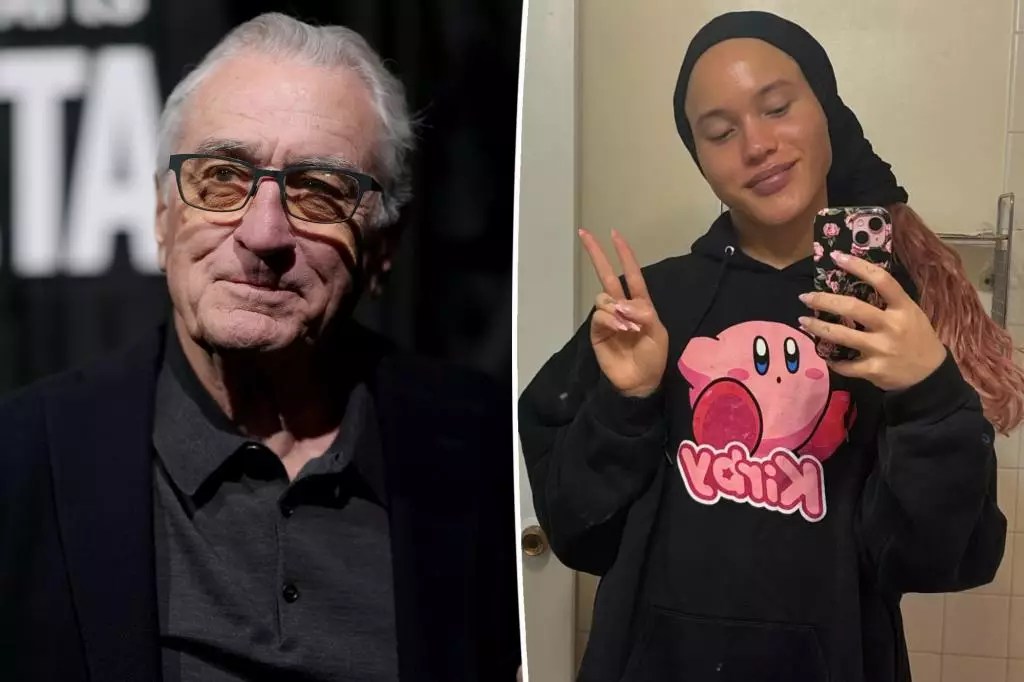In a world where public figures often navigate their lives under the scrutinizing lens of the media, Robert De Niro’s recent support for his daughter Airyn represents a significant cultural moment. When Airyn, formerly known as Aaron, revealed her transition to a female identity, De Niro’s response was refreshingly straightforward and profound: “I loved and supported Aaron as my son, and now I love and support Airyn as my daughter.” His words reflect not just a personal acceptance of his daughter, but also symbolize a wider acceptance glimmering on the horizon for transgender individuals and their families.
De Niro’s statement encapsulates an important lesson for all parents: unconditional love should transcend traditional parameters of identity. The actor’s sentiment reveals a shift in societal attitudes that increasingly embrace individuality rather than enforce conformity. In response to Airyn’s transition, he noted with admirable candor, “I don’t know what the big deal is… I love all my children.” This nonchalant attitude underscores a belief that love should naturally extend beyond societal norms—an essential narrative for a culture still grappling with inclusivity.
Finding Identity and Empowerment
Airyn’s journey is not just about personal transformation; it’s also a testament to resilience and inspiration. As she shared in her interview with Them, her realization of being a transgender woman came after observing other trans individuals openly discussing their experiences. “Trans women being honest and open… made me think: maybe it’s not too late for me,” she states, reflecting the power of representation in media. This notion that visibility can empower others to embrace their truth is both heartwarming and empowering.
Airyn’s narrative as a self-identified “late bloomer” resonates deeply, particularly among those who have faced challenges in their own transitions. Her experiences of feeling “too much” or “not enough” highlight the pressures of societal expectations, especially regarding race and gender. As a Black trans woman, Airyn’s struggles are emblematic of broader social dialogues about intersectionality and identity—how race, gender, and even body image play pivotal roles in self-acceptance.
Redefining Beauty Standards
With aspirations to pursue acting and modeling, Airyn aims to challenge conventional beauty ideals often thrust upon society. “I’d want to see more trans women, more Black women who are maybe bigger-bodied,” she articulates, illustrating a desire to redefine what it means to be seen and successful in the industry. Her aspirations highlight an essential discourse on representation and body positivity within media that celebrates diversity, rather than adhering to past norms that favor narrow definitions of beauty.
As Airyn embarks on this journey, her drive to inspire others who share her experiences speaks volumes. She exemplifies the power of reclaiming one’s identity while advocating for others similarly disenfranchised by societal standards. This courage can pave the way for more open conversations around acceptance and diversity in all areas of life, especially within the creative industries.
Robert De Niro’s support of Airyn signifies a transformative moment not only within their family but within the broader cultural landscape as well. Their story encourages others to embrace their identities boldly, asserting the importance of love, acceptance, and representation.


Leave a Reply